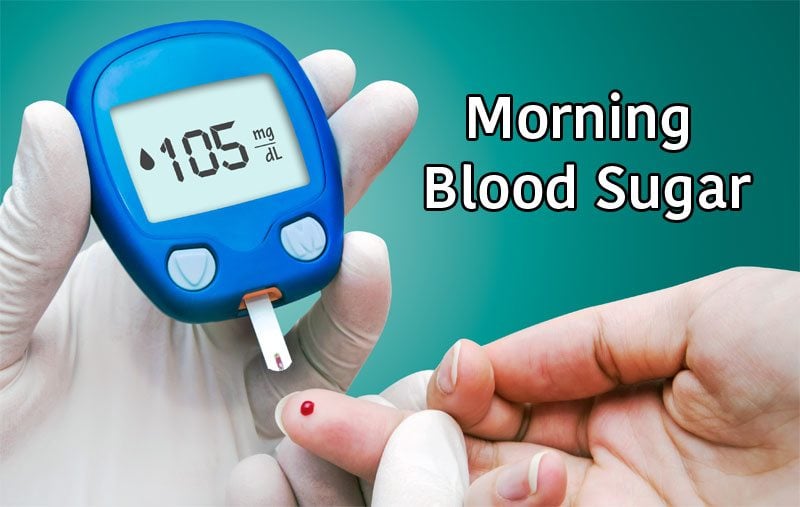
Waking up to high blood sugar levels can be frustrating and confusing, especially if you have been diligent about managing your diabetes. There are several factors that can contribute to high morning blood sugar levels, but understanding the root cause is crucial in order to properly manage and control your condition. In this article, we will explore the various reasons why your morning blood sugar may be elevated, as well as potential solutions to help bring it back to a normal range.
Causes of High Morning Blood Sugar
1. Dawn Phenomenon: One common reason for high morning blood sugar levels is the dawn phenomenon, which occurs when your body releases hormones like cortisol and growth hormone in the early hours of the morning. These hormones signal the liver to release glucose into the bloodstream, causing blood sugar levels to rise. People with diabetes may have difficulty regulating this process, leading to higher than normal blood sugar levels upon waking.
2. Somogyi Effect: Another possible cause of high morning blood sugar is the Somogyi effect, also known as rebound hyperglycemia. This occurs when blood sugar levels drop too low during the night, prompting the body to release counterregulatory hormones like glucagon and epinephrine to raise glucose levels. As a result, blood sugar levels can be elevated in the morning as a response to hypoglycemia during the night.
3. Poor Diet Choices: Consuming high-carbohydrate or sugary foods before bed can also contribute to high morning blood sugar levels. These foods can cause a spike in blood sugar levels, especially if eaten in excess or without balancing them with protein or healthy fats. Additionally, eating late at night can disrupt the body’s natural fasting process, leading to higher than normal blood sugar levels in the morning.
4. Lack of Physical Activity: Regular exercise is essential for managing blood sugar levels and insulin sensitivity. If you are inactive or sedentary, your body may have difficulty processing glucose effectively, leading to higher blood sugar levels overall, including in the morning. Incorporating regular physical activity into your routine can help improve insulin sensitivity and control blood sugar levels.
5. Medication Timing or Dosage: Insulin or diabetes medications may need to be adjusted based on your individual needs and lifestyle. If you are experiencing high morning blood sugar levels, it may be necessary to speak with your healthcare provider about adjusting your medication timing, dosage, or type in order to better control your blood sugar levels throughout the day and night.
Solutions for High Morning Blood Sugar
1. Monitor Your Blood Sugar Levels: Regularly monitoring your blood sugar levels, especially in the morning, can help you identify patterns and trends that may be contributing to high readings. By keeping track of your levels, you can work with your healthcare provider to make necessary adjustments to your diabetes management plan.
2. Adjust Your Diet: Making healthier food choices can help stabilize your blood sugar levels and prevent spikes in the morning. Focus on consuming a balanced diet that includes lean proteins, whole grains, fruits, vegetables, and healthy fats. Limit your intake of sugary and processed foods that can contribute to high blood sugar levels.
3. Time Your Meals: To help prevent high morning blood sugar levels, try to space out your meals and snacks throughout the day. Eating consistent meals and snacks at regular intervals can help stabilize blood sugar levels and prevent large fluctuations. Be mindful of portion sizes and choose foods that are lower in carbohydrates to help maintain steady blood sugar levels.
4. Incorporate Physical Activity: Regular exercise is crucial for managing blood sugar levels and improving insulin sensitivity. Aim to engage in moderate physical activity, such as walking, biking, or swimming, for at least 30 minutes a day. Find activities that you enjoy and make them a regular part of your routine to help control high morning blood sugar levels.
5. Talk to Your Healthcare Provider: If you are consistently experiencing high morning blood sugar levels despite making lifestyle changes, it may be necessary to speak with your healthcare provider. Your provider can help identify the underlying cause of your elevated blood sugar levels and work with you to adjust your diabetes management plan accordingly. They may recommend changes to your medication, diet, or exercise routine to help better control your blood sugar levels.
In conclusion, high morning blood sugar levels can be a frustrating and challenging aspect of managing diabetes. By understanding the potential causes of elevated blood sugar levels in the morning and implementing solutions to address them, you can better control your condition and reduce the risk of complications. Monitoring your blood sugar levels, adjusting your diet and exercise routine, and working closely with your healthcare provider can all contribute to improved blood sugar control and overall health. Remember that managing diabetes is a continuous process, and it may take time to find the right balance for your individual needs. By staying proactive and committed to your health, you can successfully manage high morning blood sugar levels and lead a healthy, fulfilling life.

















